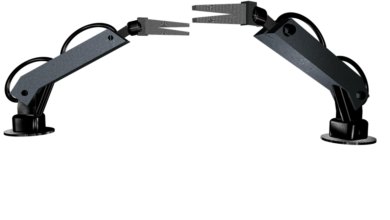
The Silence Breakers: Innovations That Are Redefining Industries
One of the most significant Silence Breakers is AI, with its unparalleled capacity for data analysis and decision-making. AI’s integration into business operations facilitates real-time insights and predictions, enabling more informed decisions than ever before. In healthcare, for example, AI-powered diagnostics elevate patient care by identifying diseases at their nascent stages, significantly increasing the chances of successful treatment. However, while AI promises to streamline operations and enhance accuracy, it also raises concerns about data privacy and job displacement.
Blockchain technology is another Silence Breaker revolutionizing industries by providing a secure and transparent way to conduct transactions. Its decentralized nature ensures that data is not stored in a single location, reducing the risk of tampering and fraud. For the finance industry, blockchain introduces a new paradigm for secure, transparent transactions, eliminating intermediaries and reducing transaction costs. Nevertheless, the adoption of blockchain is met with challenges, such as high energy consumption and the need for a comprehensive regulatory framework.
Robotics, once confined to science fiction, has now permeated various sectors, automating tasks that were previously thought to require human intervention. In manufacturing, advanced robots not only assemble products with precision but also perform quality checks, significantly reducing the margin for error and enhancing productivity. While robotics in the workplace increases efficiency, it also sparks debates on the ethical implications of replacing human labor and the potential for increased unemployment.
The deployment of these innovations brings several advantages, including operational efficiency, enhanced security, and the ability to provide personalized services. However, it’s also imperative to consider the flip side. The widespread use of these technologies could lead to job displacement, ethical dilemmas in AI decision-making, and privacy concerns. Moreover, the need for businesses to continuously adapt to these rapidly evolving technologies can be daunting, requiring substantial investment in time and resources.
In conclusion, The Silence Breakers are undeniably transforming industries, promising a future where businesses operate with unprecedented efficiency, transparency, and responsiveness to consumer needs. As we navigate through this revolutionary period, it’s essential to foster a balance between leveraging these innovations for growth and addressing the ethical and societal implications they bring. Looking towards the future, ongoing dialogue, regulations, and education will be key in ensuring that the benefits of these technologies are maximized while minimizing their drawbacks. The journey of integrating The Silence Breakers into the fabric of industries is just beginning, and it’s a path fraught with challenges but also brimming with potential.




